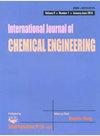生活有机废物:通过单室微生物燃料电池产生能量的潜在来源
IF 2.4
4区 工程技术
Q3 ENGINEERING, CHEMICAL
引用次数: 5
摘要
微生物燃料电池(MFC)是一种既有效又环保的可再生电力生产方法。几项研究表明,主要挑战之一是由于有机衬底开发不良而产生电子。生物有机废物在MFC中的再利用是现代分子融合中最受关注的问题之一。本文重点介绍了如何有效利用生活有机废物作为细菌产生能量的有机来源。得到的结果对应于独一无二的MFC操作,其中在12天的时间范围内产生110 mV的电压,外部电阻为500ῼ。当内阻为117ῼ时,最大功率密度为0.1047 mW/m2,电流密度为21.84 mA/m2。根据生物学研究的结果,铜绿假单胞菌、辛氏不动杆菌和硝基还原假单胞菌等细菌菌株负责产生能量。此外,还附上了最后的评论和对未来的建议。本文章由计算机程序翻译,如有差异,请以英文原文为准。
Domestic Organic Waste: A Potential Source to Produce the Energy via a Single-Chamber Microbial Fuel Cell
Microbial fuel cell (MFC) is a method that is both effective and environmentally friendly for producing renewable electricity. Several studies have shown that one of the major challenges is the generation of electrons as a result of poor exploitation of organic substrates. One of the most talked about issues in modern molecular fusion is the reutilization of biological organic waste in an MFC. In this article, the effective utilization of domestic organic waste as an organic supply for bacterial species to generate energy was highlighted. The findings that were obtained corresponded to the one-of-a-kind MFC operation in which a voltage of 110 mV was generated in a time span of 12 days during operation with an external resistance of 500 ῼ. With an internal resistance of 117 ῼ, the maximum power density and the current density were recorded 0.1047 mW/m2 and 21.84 mA/m2, respectively. According to the results of the biological study, strains of bacteria such as Pseudomonas aeruginosa, Acinetobacter schindleri, and Pseudomonas nitroreducens are the ones responsible for producing energy. In addition, final remarks with proposals for the future have been enclosed.
求助全文
通过发布文献求助,成功后即可免费获取论文全文。
去求助
来源期刊

International Journal of Chemical Engineering
Chemical Engineering-General Chemical Engineering
CiteScore
4.00
自引率
3.70%
发文量
95
审稿时长
14 weeks
期刊介绍:
International Journal of Chemical Engineering publishes papers on technologies for the production, processing, transportation, and use of chemicals on a large scale. Studies typically relate to processes within chemical and energy industries, especially for production of food, pharmaceuticals, fuels, and chemical feedstocks. Topics of investigation cover plant design and operation, process design and analysis, control and reaction engineering, as well as hazard mitigation and safety measures.
As well as original research, International Journal of Chemical Engineering also publishes focused review articles that examine the state of the art, identify emerging trends, and suggest future directions for developing fields.
 求助内容:
求助内容: 应助结果提醒方式:
应助结果提醒方式:


